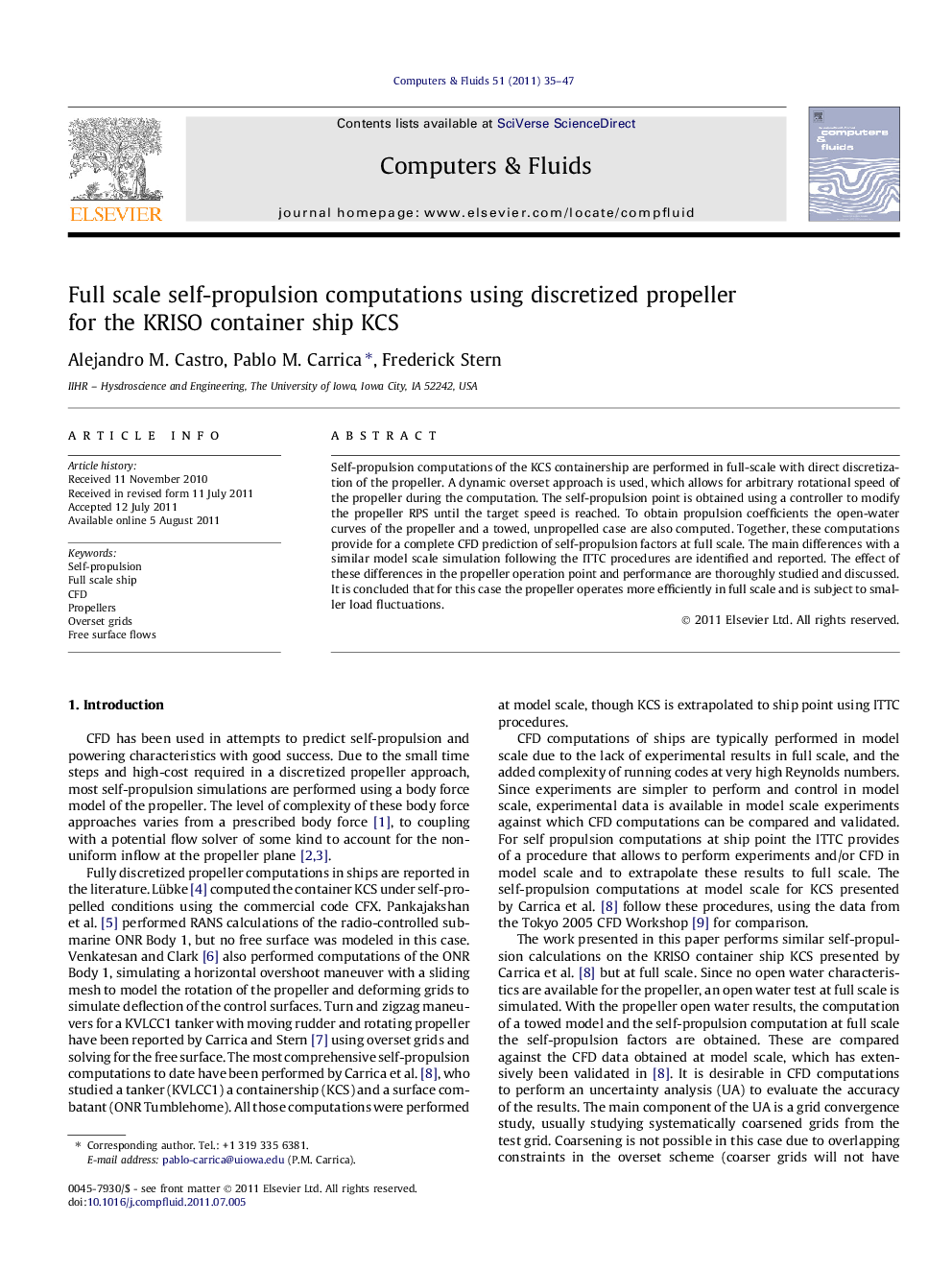| Article ID | Journal | Published Year | Pages | File Type |
|---|---|---|---|---|
| 762518 | Computers & Fluids | 2011 | 13 Pages |
Self-propulsion computations of the KCS containership are performed in full-scale with direct discretization of the propeller. A dynamic overset approach is used, which allows for arbitrary rotational speed of the propeller during the computation. The self-propulsion point is obtained using a controller to modify the propeller RPS until the target speed is reached. To obtain propulsion coefficients the open-water curves of the propeller and a towed, unpropelled case are also computed. Together, these computations provide for a complete CFD prediction of self-propulsion factors at full scale. The main differences with a similar model scale simulation following the ITTC procedures are identified and reported. The effect of these differences in the propeller operation point and performance are thoroughly studied and discussed. It is concluded that for this case the propeller operates more efficiently in full scale and is subject to smaller load fluctuations.
► Self-propulsion computations of a surface ship using discretized propeller in full scale are presented for the first time. ► Computations involve overset grids and autopilot to determine the self-propulsion point and are resource intensive. ►All propulsion factors are obtained numerically by computing the propeller curve, the towed and the self-propelled ships. ► The propeller operates more efficiently in full scale than in model scale with a 12% smaller torque coefficient. ► Blade loads fluctuations are smaller in full scale, with axial force and bending moment amplitudes 13% and 25.9% smaller.
